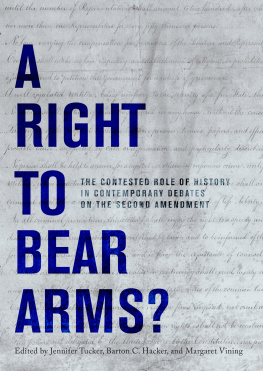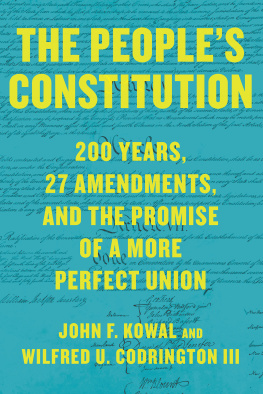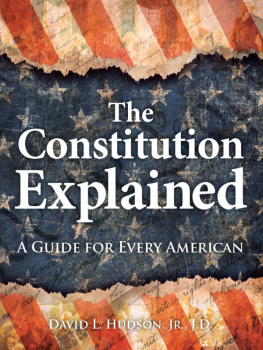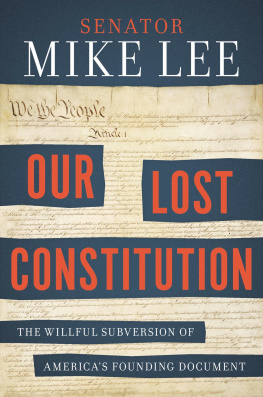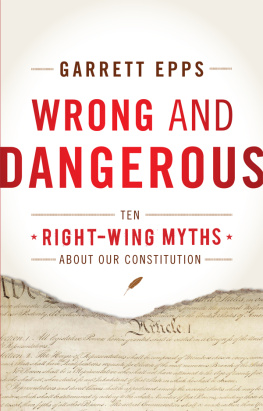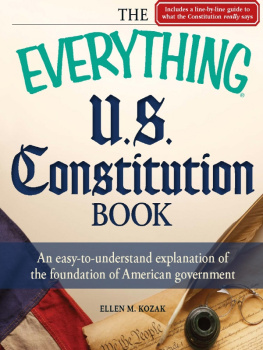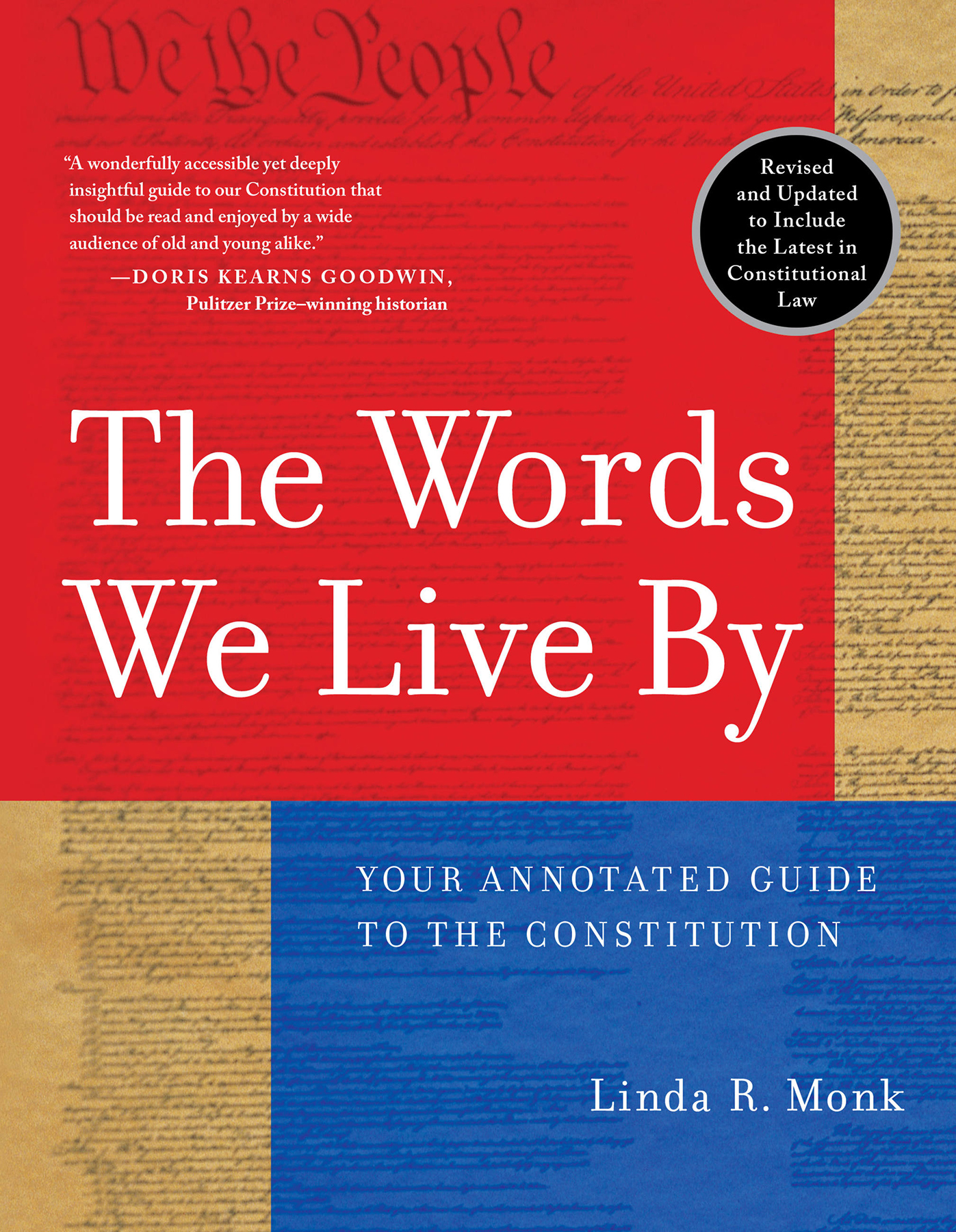Thank you for buying this ebook, published by HachetteDigital.
To receive special offers, bonus content, and news about ourlatest ebooks and apps, sign up for our newsletters.
Copyright 2003, 2015 Linda R. Monk and Stonesong Press, LLC.
Developed and produced by the Stonesong Press, LLC
LLC Partners: Alison Fargis and Ellen Scordato
Project director: Ellen Scordato
Original design: Laura Smyth, Smythtype
Revised design and typesetting: Concentra, Lisa Story, Chakra Communications
Photo research, original edition by Michele Camardella; revised edition by Nicole DiMella
All rights reserved. In accordance with the U.S. Copyright Act of 1976, the scanning, uploading, and electronic sharing of any part of this book without the permission of the publisher constitute unlawful piracy and theft of the authors intellectual property. If you would like to use material from the book (other than for review purposes), prior written permission must be obtained by contacting the publisher at permissions@hbgusa.com. Thank you for your support of the authors rights.
Hachette Books
Hachette Book Group
1290 Avenue of the Americas, New York, NY 10104
hachettebookgroup.com
The Hachette Speakers Bureau provides a wide range of authors for speaking events. To find out more, go to www.HachetteSpeakersBureau.com or call (866) 376-6591.
The publisher is not responsible for websites (or their content) that are not owned by the publisher.
Information regarding extracts and citations can be found in the endnotes .
Image credits can be found .
The Ghost of Elbridge, John Fund. Used with permission from American Spectator/John Fund.
Make Sure Congress Can Survive the Worst-Case Scenario, Norman Ornstein. Used with permission from Norman Orstein.
Your Vote Does Not Count, Rep. John Lewis. Used by permission of Rep. John Lewis.
How to Make the President Talk to the Local Pol, by Charles Fried. From The New York Times, Nov 11, 2000. 2000 The New York Times. All Rights Reserved. Used by permission and protected by the Copyright Laws of the United States. The printing, copying, redistribution, or retransmission of this Content without express written permission is prohibited.
The New Type of War, by Jack Goldsmith. Used with permission from Jack Goldsmith.
Judging By Ideology, Charles E. Schumer. From The New York Times, June 26, 2001. 2001 The New York Times. All Rights Reserved. Used by permission and protected by the Copyright Laws of the United States. The printing, copying, redistribution, or retransmission of this Content without express written permission is prohibited.
Justices Gone Wild, by Ross Douthat. From The New York Times, June 1, 2009. 2009 The New York Times. All Rights Reserved. Used by permission and protected by the Copyright Laws of the United States. The printing, copying, redistribution, or retransmission of this Content without express written permission is prohibited.
Portias Progress, Sandra Day OConnor. Used with permission from Justice OConnor.
The End of Ick, by George Takei
To Honor the Children Weve Lost, Mark Barden and David Wheeler. Sandy Hook Promise, Mark Barden and David Wheeler.
The Conservative Case Against the Death Penalty by S.E. Cupp (05/06/2014). Daily News, L.P. (New York). Used with permission.
Changing the 14th Amendment wont solve our immigration crisis, Alberto R. Gonzales. Used with permission from Alberto R. Gonzales.
Not So Wise, Linda Chavez. By permission Linda Chavez and Creators Syndicate, Inc.
The Body Count Continues, Salim Muwakkiil. Used with permission from Salim Muwakkiil.
ISBN 978-0-316-38186-4
E3-20180703-JV-PC
For my beloved husband, Stephen, who made this book possible.
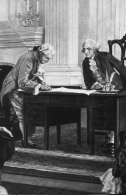
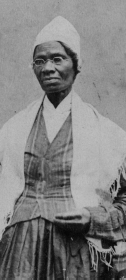
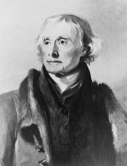
I am grateful to the creative team who helped bring this book to fruition. At Stonesong Press, Paul Fargis provided both the original concept and the primary impetus for the book, and Ellen Scordatos persistence made this revision possible. The books principal content reviewer was Dr. John W. Winkle, III, professor of political science at the University of Mississippi, and he has been my mentor in constitutional law for more than thirty-five years. Ralph Eubanks, former director of publishing at the Library of Congress and a fellow Ole Miss alum, knew this was the right project for me and encouraged me to take it.
I am also grateful that two of the leading lights of American constitutional law, John Hart Ely and Laurence Tribe, were my teachers at Harvard Law School. And Steve Frank, former vice president at the National Constitution Center, was one of the books earliest and most ardent supporters. Most of all, my love and gratitude go to my life partner and husband, Stephen G. Cook, for his unwavering support. This book truly would not have been written without him.
Linda R. Monk, J.D., is a constitutional scholar, journalist, and nationally award-winning author. A graduate of Harvard Law School, she twice received the American Bar Associations Silver Gavel Award, its highest honor for law-related media. She served as Series Advisor for the PBS documentary Constitution USA, and she has appeared on MSNBC, C-SPAN, and NPR. For more than 25 years, Monk has written commentary for the New York Times, Washington Post, Los Angeles Times, and Chicago Tribune. She served as a Visiting Scholar at the National Constitution Center in Philadelphia, the Lead Curator for the McCormick Tribune Freedom Museum in Chicago, and a consultant to the Newseum in Washington, D.C. She has served on the Board of Trustees for the U.S. Capitol Historical Society and the Jamestown-Yorktown Foundation and conducted seminars for such groups as the Pentagon, Fulbright Scholars, National Archives, Smithsonian Institution, George Washingtons Mount Vernon, and National History Day.
Every morning we wake up and decide that we want to live in a constitutional republic.
Garrett Epps, author
M any Americans think of the Constitution as words on paper preserved under glass at the National Archives in Washington, D.C. But the Constitution is also the product of an ongoing conversation among Americans about the meaning of freedom in their daily lives.
Americas conversation about liberty included women and men of all classes, races, and religionsenslaved and free. The slaves of Massachusetts petitioned for their unalienable right to freedom in 1777 with words echoing the Declaration of Independence. White men without property sought the right to vote. The Cherokee Nation, although deprived of its land, believed that American Indians should be protected under the Constitution. Women argued that they, too, were included in We the People. In this book, you will hear the voices of Americas founders and fanatics, of Supreme Court justices and civil rights workers. Among this cacophony are rock star Ted Nugent, first-grader Ruby Bridges, actor and gay rights activist George Takei, ex-con Clarence Earl Gideon, and pro-life protester Norma McCorvey.


